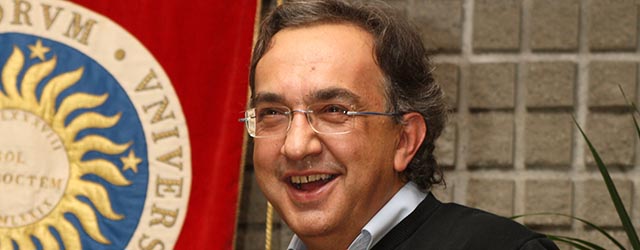Italy: Sergio Marchionne, the 63-year-old CEO of Fiat Chrysler Automobiles (FCA), is celebrated as the mastermind of one of the few successful mergers in the industry’s history, the marriage of Fiat and Chrysler.

But the Italian-born, Canadian-raised manager is not resting on his laurels. He keeps hunting for new deals in a world of titans that, so far, have turned down his Latin-lover approach.
With FCA gaining market shares in Europe and the US, Marchionne is enjoying a moment of glory. An 11th-hour deal in October with the powerful United Auto Workers (UAW) in Detroit avoided a strike that, analysts said, could have cost more than $1 billion per week. The deal affirms the bond between Marchionne and US unions. It is the first such deal for the auto industry after the financial crisis.
Volkswagen’s travails—the German automaker has been engulfed in scandal for rigging emissions tests on millions of diesel-engine vehicles to pass requirements set by the US Environmental Protection Agency—have clouded the future market appeal of one of FCA’s archrivals.
An oft-postponed plan to spin off and list luxury automaker Ferrari was launched in October and has been dubbed “IPO of the year” even before demand has been made official. FCA will sell up to 10% of Ferrari and will use the proceeds to pay for its own expansion. Ferrari is expected to be valued up to $9.8 billion.
Lastly, Catholics and non-Catholics alike enjoyed seeing Italian-Argentine Pope Francis during his first official visit touring the US in a dark-gray Fiat 500, FCA’s trademark successful little car.
All these achievements pale in comparison to Marchionne’s next goal. For two years now, he has been actively and publicly pursuing a hookup with GM. Thus far, he has been snubbed by GM CEO Mary Barra, but Marchionne seems unfazed and is apparently convinced that smaller Chrysler can really aspire to a deal with the largest automaker in the US. He’s known for bold ideas—like Fiat acquiring its much larger rival, beleaguered Chrysler.
Circumstances, of course, are very different from 2009, when Fiat got 20% of Chrysler for no cash in the most severe crisis in a generation. But Marchionne insists that a consolidation of the auto industry is much needed. In his April speech “Confession of a Capital Junkie,” Marchionne said that the high cost of vehicle developments for “proprietary components, many not really discernible to customers,” makes the industry unable to recover the cost of capital over a cycle, making its returns highly volatile. The solution? Consolidation.



